In today’s digital landscape, where social media reigns supreme, rumors can spread faster than wildfire. The case of actress Peyton List is a prime example of how quickly misinformation can take root. This article aims to delve into the origins of the nude rumors surrounding her, scrutinizing sources and public reactions to separate fact from fiction.
What Are the Origins of Peyton List’s Nude Rumors?
The origins of nude rumors often trace back to misinterpreted social media posts or leaked images. In Peyton List’s case, the rumors reportedly began circulating after an ambiguous photo was shared online, leading fans to speculate wildly. Social media platforms, while providing a space for fans to connect, can also become hotbeds for gossip. A simple misinterpretation can snowball into widespread belief, highlighting the need for critical thinking when consuming celebrity news.
How Do Celebrity Nude Rumors Typically Spread?
Nude rumors frequently propagate through various channels, including social media, gossip blogs, and fan forums. The viral nature of these platforms amplifies unverified claims. For instance, a tweet or Instagram post can reach millions within minutes, often without any fact-checking. This rapid dissemination raises questions about the reliability of sources and the motivations behind sharing such content. Fans must navigate this landscape carefully, as the line between fact and fiction can easily blur.
What Evidence Supports or Disproves the Rumors?
To assess the validity of the nude rumors about Peyton List, one must examine the available evidence. This includes scrutinizing the alleged images, analyzing statements from List herself, and considering insights from credible sources. In many cases, celebrities may deny such rumors outright, providing a clear stance against misinformation. For example, List has publicly addressed the rumors, emphasizing the importance of respecting personal privacy and the impact of false claims on individuals.
How Has Peyton List Responded to the Rumors?
Peyton List’s response to the nude rumors has been measured and thoughtful. Rather than igniting further controversy, she has chosen to address the situation with grace. By utilizing her social media platforms to clarify her stance, she has fostered a sense of transparency with her fans. This approach not only reinforces her credibility but also encourages a healthier dialogue around celebrity gossip.
What Role Does Social Media Play in Celebrity Gossip?
Social media serves as a double-edged sword for celebrities like Peyton List. On one hand, it allows for direct engagement with fans, fostering a loyal community. On the other hand, it can become a breeding ground for rumors and misinformation. The immediacy of social media means that unverified claims can gain traction quickly, often overshadowing the truth. Understanding this dynamic is crucial for both celebrities and fans in navigating the complexities of modern fame.
Are There Similar Cases of Celebrity Nude Rumors?
Many celebrities have faced similar challenges regarding nude rumors. High-profile figures often find themselves in the crosshairs of public scrutiny, leading to a cycle of speculation and denial. For instance, stars like Jennifer Lawrence and Emma Watson have also addressed similar rumors, often resulting in public denials or legal actions against those spreading false information. These cases highlight a troubling trend in celebrity culture, where privacy is frequently compromised.
What Impact Do These Rumors Have on Celebrities?
The psychological toll of rumors can be significant for celebrities. Public scrutiny can lead to anxiety, depression, and a sense of isolation. The constant pressure to maintain a certain image can affect mental health and relationships. For Peyton List and others in the limelight, navigating these challenges requires resilience and support from their inner circles.
How Do Fans React to Nude Rumors About Their Favorite Celebrities?
Fan reactions to nude rumors can vary widely. While some may rally in support of their favorite stars, others may express disbelief or even perpetuate the rumors further. This dynamic illustrates the complex relationship between celebrities and their fans, often influenced by social media narratives. Understanding these reactions can provide insight into the broader implications of celebrity culture in the digital age.
What Are the Legal Implications of Spreading False Rumors?
The spread of false rumors can have serious legal consequences, including defamation lawsuits. Celebrities like Peyton List have the right to protect their image and reputation from malicious gossip. This section will explore the legal framework surrounding celebrity gossip and the potential repercussions for those who spread false information, emphasizing the importance of responsible reporting.
How Can Fans Differentiate Between Fact and Fiction?
In a world rife with misinformation, fans must develop skills to discern fact from fiction. This includes critically evaluating sources, seeking out credible news outlets, and being wary of sensationalized headlines. By fostering a culture of skepticism and inquiry, fans can contribute to a more informed dialogue surrounding celebrity news.
What Are the Psychological Effects of Celebrity Culture?
The obsession with celebrity culture can lead to unrealistic expectations and pressures on both celebrities and fans. Understanding these psychological effects is crucial in navigating the world of fame. For fans, it can create a sense of entitlement to know every detail about a celebrity’s life, while for celebrities, it can foster anxiety and a fear of public perception.
How Do Public Relations Teams Manage Rumors?
Public relations teams play a vital role in shaping a celebrity’s image and addressing rumors. They employ various strategies, from direct communication to strategic silence, to mitigate the impact of false claims. This section will explore how PR professionals navigate the complex landscape of celebrity gossip, emphasizing the importance of proactive engagement.
What Is the Role of the Media in Reporting on Celebrity Rumors?
Media outlets often sensationalize rumors for clicks and views. This section examines their role in perpetuating gossip, highlighting the responsibility of journalists to report ethically. By prioritizing accuracy over sensationalism, the media can contribute to a healthier dialogue around celebrity culture.
How Do Fans Feel About Celebrities Addressing Rumors?
Fans generally appreciate when celebrities take a stand against rumors, as it fosters authenticity and transparency. This section discusses the positive impact of open communication between stars and their followers, emphasizing the value of honesty in the celebrity-fan relationship.
What Are the Consequences of Misinformation in the Age of Social Media?
Misinformation can have far-reaching consequences, affecting public opinion and individual lives. Understanding these repercussions is essential in the context of celebrity culture and beyond. The spread of false information can lead to damaged reputations and strained relationships, underscoring the need for responsible consumption of media.
How Can We Foster a Healthier Dialogue Around Celebrity Gossip?
Encouraging respectful and informed discussions about celebrities can help combat the negativity surrounding rumors. This section will explore ways to create a more positive environment for fans and stars alike, emphasizing the importance of empathy and understanding in celebrity culture.

What Are the Origins of Peyton List’s Nude Rumors?
In today’s digital world, where information spreads at lightning speed, celebrity rumors can quickly become sensationalized. One such case is the nude rumors surrounding actress Peyton List. Understanding the origins of these rumors is crucial in assessing their validity and impact on her public image. The origins of such rumors often lie in a complex interplay of social media, fan speculation, and sometimes even misinformation.
The genesis of Peyton List’s nude rumors can be traced back to a combination of leaked images and misinterpreted social media activity. In many instances, rumors about celebrities begin with a seemingly innocent post or an ambiguous photograph that fans and followers interpret in various ways. For instance, a candid photo shared on social media may be taken out of context, leading to wild speculation about the celebrity’s personal life.
In the case of Peyton List, some rumors originated from a series of photos that surfaced online, which were misattributed or manipulated to suggest that they depicted her in compromising situations. These images, often shared on gossip websites and social media platforms, can easily go viral, creating a snowball effect of misinformation. Fans, eager to discuss their favorite stars, sometimes contribute to the spread of these rumors through comments and shares, further amplifying the reach of unverified claims.
Moreover, the role of fan speculation cannot be underestimated. The community surrounding a celebrity often engages in discussions that may veer into rumor territory. Fans may dissect a celebrity’s social media posts, searching for hidden meanings or clues about their personal lives. This kind of engagement, while often harmless, can inadvertently contribute to the spread of false narratives.
- Leaked Photos: Often the catalyst for rumors, these images can be altered or misrepresented.
- Social Media Misinterpretations: Posts that lack context can lead to misunderstandings and speculation.
- Fan Speculation: Enthusiastic discussions among fans can perpetuate rumors, even without credible evidence.
To further complicate matters, some media outlets may sensationalize these rumors for clicks and views, prioritizing engagement over accuracy. This can create a cycle where misinformation is continuously propagated, making it challenging for the public to discern fact from fiction. The combination of these elements creates a fertile ground for rumors to flourish, often leaving the celebrity in a difficult position to address the fallout.
Understanding the origins of Peyton List’s nude rumors highlights the need for critical thinking when consuming celebrity news. It serves as a reminder that the world of celebrity gossip is not always as straightforward as it seems. By examining the sources and motivations behind these rumors, fans and followers can better navigate the often murky waters of celebrity culture.
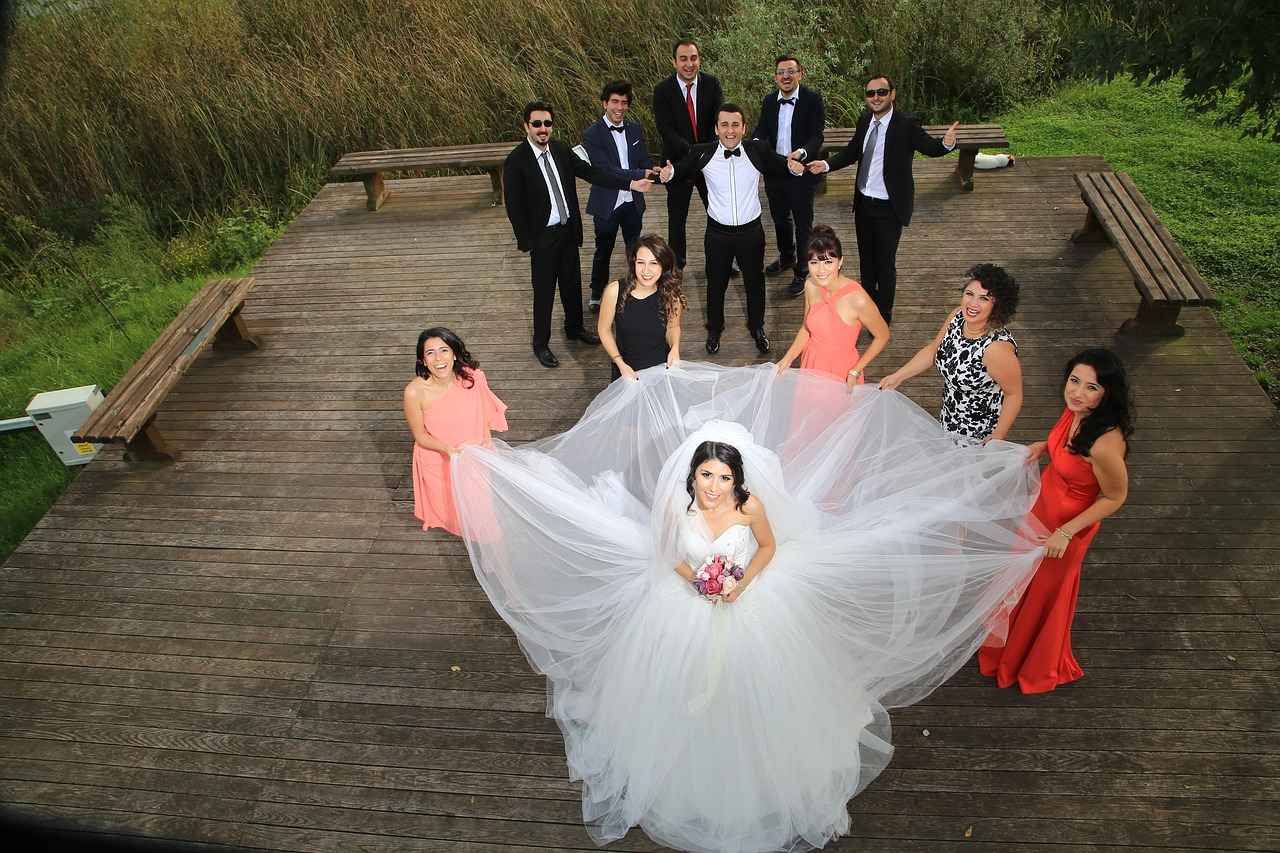
How Do Celebrity Nude Rumors Typically Spread?
In today’s digital landscape, the dissemination of information occurs at lightning speed, especially when it comes to celebrities. Among the most sensational and often damaging types of gossip are nude rumors. These rumors can emerge from various sources, and understanding how they spread is crucial for both fans and the celebrities themselves.
Nude rumors often find their way into the public eye through a combination of social media, gossip websites, and fan forums. The viral nature of these platforms can amplify unverified claims, making it essential to pinpoint the origins of such information. Here’s a closer look at the mechanisms behind the spread of these rumors:
- Social Media Platforms: Social media has become a primary vehicle for sharing information. Platforms like Twitter, Instagram, and TikTok allow users to disseminate content rapidly. A single post can go viral, reaching millions within hours. This immediacy can lead to the spread of rumors before any verification takes place.
- Gossip Websites: Websites dedicated to celebrity news often prioritize sensational stories to attract clicks. These outlets may publish articles based on hearsay or unverified sources, which can lead to the propagation of false information. The allure of scandal often trumps the need for factual accuracy.
- Fan Forums and Online Communities: Dedicated fan forums serve as breeding grounds for speculation. Fans often discuss their favorite celebrities, and rumors can emerge from these discussions. A casual comment can snowball into a widely accepted belief among fans, regardless of its truth.
- Misinterpretation of Content: Sometimes, a seemingly innocent social media post can be misinterpreted. For example, a photo that is suggestive or ambiguous may lead to assumptions that it is a leaked nude. This misinterpretation can ignite rumors that spiral out of control.
In addition to these channels, the role of celebrity culture cannot be overlooked. Fans often have a vested interest in the personal lives of their favorite stars, leading to an insatiable appetite for information, whether true or false. This dynamic encourages the spread of rumors, as fans may share content without verifying its authenticity.
Furthermore, the anonymity of the internet allows individuals to post comments or share content without accountability. This lack of responsibility can embolden users to spread rumors, contributing to the cycle of misinformation. In some cases, individuals may even create fake accounts or use pseudonyms to propagate false narratives, complicating efforts to trace the origins of these rumors.
Ultimately, the spread of nude rumors is a multifaceted issue, driven by the interplay of social media dynamics, celebrity culture, and the human tendency to gossip. As consumers of information, it’s vital for fans and the general public to approach such rumors with skepticism and to seek out credible sources before accepting claims as fact. Understanding how these rumors spread can empower individuals to navigate the complex landscape of celebrity gossip more effectively.

What Evidence Supports or Disproves the Rumors?
Peyton List Nude Rumors: Sorting Fact from Fiction
In today’s digital landscape, where information spreads rapidly, celebrity rumors can quickly escalate into widespread speculation. One such case is the nude rumors surrounding actress Peyton List. This article aims to dissect the evidence surrounding these rumors, focusing on various elements such as photos, public statements, and insights from credible sources. By scrutinizing these aspects, we can better understand the truth behind the claims.
Examining the evidence surrounding Peyton List’s nude rumors is crucial for discerning fact from fiction. The initial spark for these rumors often comes from leaked photos or misinterpreted social media posts. In this case, some images circulated online, which were claimed to feature List in compromising situations. However, a closer look at these images reveals that they may have been digitally altered or taken out of context. It’s essential to approach such visuals with a critical eye, as many can be misleading.
Furthermore, Peyton List herself has addressed these rumors on multiple occasions. In interviews and social media posts, she has categorically denied the authenticity of any nude images purportedly featuring her. Her statements emphasize her commitment to maintaining her privacy and integrity in an industry that often scrutinizes every aspect of a celebrity’s life. This direct response from List serves as a significant counterpoint to the circulating rumors.
In addition to List’s statements, comments from credible sources in the entertainment industry can offer valuable context. Industry insiders and media analysts have weighed in, suggesting that the rumors are largely unfounded and fueled by the sensationalist tendencies of gossip blogs and social media platforms. Many experts highlight the importance of verifying information before spreading it, especially in a climate where misinformation can easily gain traction.
Moreover, the role of social media cannot be understated. Platforms like Twitter and Instagram can amplify rumors, allowing them to reach a wider audience in a matter of minutes. This rapid dissemination can make it challenging for celebrities to control their narratives. However, List’s proactive approach in addressing the rumors head-on has helped mitigate some of the potential damage.
To summarize, the evidence surrounding Peyton List’s nude rumors hinges on a combination of photo analysis, public statements, and insights from industry experts. While the rumors may have gained traction initially, the lack of credible evidence and List’s firm denials contribute to the belief that these claims are largely unfounded. As consumers of information, it is our responsibility to critically evaluate sources and claims, especially in the age of digital misinformation.

How Has Peyton List Responded to the Rumors?
In the world of celebrity, few things can stir the pot quite like rumors surrounding personal lives, particularly when they involve sensitive topics like nudity. Peyton List, known for her roles in popular shows and movies, has recently found herself the subject of such rumors. Understanding how she has responded to these allegations provides valuable insight into her perspective and the broader implications of celebrity culture.
Peyton List’s approach to addressing the nude rumors that have circulated about her is both interesting and revealing. Rather than engaging directly with the rumors in a confrontational manner, she has opted for a more nuanced strategy that reflects her understanding of the media landscape. This response can be seen as a calculated move to maintain her public image while also protecting her personal boundaries.
Often, celebrities like List will use social media platforms to communicate their thoughts, whether through direct statements or subtle hints. In her case, List has made posts that emphasize positivity and self-acceptance, which can be interpreted as a response to the negativity surrounding the rumors. By focusing on empowerment and confidence, she effectively redirects the conversation away from the rumors and towards a more constructive dialogue about body image and self-worth.
Moreover, List has been known to engage with her fans in a way that fosters community and support. This engagement is crucial, as it allows her to shape public perception and counteract the potentially damaging effects of gossip. For example, during interviews, she has emphasized the importance of mental health and the impact of social media on young people, subtly addressing the toxic environment that can lead to such rumors. This not only showcases her maturity but also positions her as a role model for her audience.
In addition to her social media presence, List has also utilized her platform to advocate for causes close to her heart, such as anti-bullying initiatives. By aligning herself with positive movements, she further distances herself from the negativity of the rumors. This strategy is effective in that it not only reinforces her brand as a wholesome and relatable figure but also encourages her followers to engage in more meaningful conversations.
Ultimately, Peyton List’s response to the nude rumors is a testament to her understanding of the complexities of celebrity life. By choosing to emphasize positivity and community engagement, she not only protects her image but also contributes to a healthier dialogue around body image and self-acceptance. This approach reflects a growing trend among celebrities who are increasingly aware of their influence and the responsibilities that come with it.
In conclusion, Peyton List’s handling of the nude rumors showcases her maturity and strategic thinking. Her focus on empowerment, community, and mental health serves as a reminder that celebrities can use their platforms for good, even in the face of unfounded allegations. As the landscape of celebrity culture continues to evolve, List’s response may well set a precedent for how public figures can navigate the often treacherous waters of rumor and speculation.

What Role Does Social Media Play in Celebrity Gossip?
In today’s digital landscape, social media has transformed the way we consume information, particularly when it comes to celebrity gossip. Platforms like Twitter, Instagram, and Facebook have become the primary channels for news and rumors, allowing fans to connect with their favorite stars while also creating a volatile environment for misinformation to thrive. This article delves into the complex role social media plays in the realm of celebrity gossip, exploring both its advantages and drawbacks.
Social media serves as a megaphone for celebrity news, amplifying whispers into headlines almost instantaneously. The viral nature of these platforms means that a single tweet or post can reach millions within minutes, making it easier than ever for rumors to spread. For instance, a seemingly innocuous photo shared by a celebrity can lead to wild speculation about their personal life, especially if it is taken out of context.
- Instant Sharing: Users can share posts with just a click, leading to rapid dissemination of information.
- Engagement: Likes, shares, and comments can create a snowball effect, further increasing visibility and reach.
- Influencer Impact: Influencers often have large followings, and their opinions can sway public perception significantly.
While social media can be a platform for fans to engage with celebrities, it also acts as a breeding ground for misinformation. False claims can circulate rapidly, leading to public backlash and emotional distress for those involved. The anonymity of the internet allows users to post unverified information without accountability, which can have serious ramifications for the celebrities targeted.
| Risk | Description |
|---|---|
| Defamation | False rumors can damage a celebrity’s reputation, leading to loss of opportunities. |
| Public Scrutiny | Invasive gossip can lead to intense media scrutiny and public backlash. |
| Mental Health Issues | Continuous rumors and negative comments can affect the mental well-being of celebrities. |
Given the challenges posed by social media, many celebrities have developed strategies to manage their online presence and mitigate the impact of rumors. Some choose to address rumors directly, using their platforms to set the record straight. Others may opt for silence, allowing the chatter to dissipate over time. Engaging with fans positively can also build loyalty and create a supportive community that counters negativity.
- Transparency: Celebrities who openly discuss their lives can foster a sense of trust with their audience.
- Professional PR Teams: Many stars employ public relations teams to handle rumors and maintain their image.
- Direct Engagement: Responding to fans and addressing concerns can help clarify misunderstandings.
In conclusion, social media plays a pivotal role in shaping celebrity gossip, functioning as both a tool for connection and a platform for misinformation. As fans, it’s essential to approach the news with a critical eye and recognize the potential consequences of spreading unverified claims. By fostering a culture of respect and accountability, we can create a healthier dialogue around celebrity culture.

Are There Similar Cases of Celebrity Nude Rumors?
In the world of celebrity culture, rumors often become a part of the narrative, particularly when it comes to sensitive topics like nude photos. The case of Peyton List is not unique; many celebrities have found themselves at the center of similar controversies. Understanding these instances can shed light on the broader implications of such rumors and the impact they have on both the stars involved and their fans.
The phenomenon of celebrity nude rumors is far from rare. In fact, numerous high-profile celebrities have faced similar situations, often leading to significant media coverage and public scrutiny. For instance, celebrities like Jennifer Lawrence and Kate Upton have been victims of hacked photo leaks, resulting in a wave of speculation and gossip. These incidents not only invade the privacy of the individuals involved but also spark discussions about consent and the ethics of sharing personal images.
Many of these rumors typically originate from leaked images or misinterpreted social media posts. For example, when a celebrity posts a seemingly harmless photo, it can quickly be twisted and manipulated by gossip sites, leading to a frenzy of speculation. This was evident in the case of Rihanna, whose personal photos were leaked and misrepresented, causing her to address the situation publicly. The rapid spread of misinformation can create a toxic environment where celebrities are forced to defend their reputations against unfounded claims.
- Public Denials: Many celebrities have publicly denied the rumors, often through social media platforms. This direct approach helps to clarify their stance and combat misinformation.
- Legal Action: In some cases, celebrities have taken legal action against those responsible for spreading false information. For instance, Justin Bieber faced rumors that led him to file lawsuits against gossip magazines.
- Media Responsibility: The role of media outlets in amplifying these rumors cannot be overstated. Sensational headlines often prioritize clicks over accuracy, further complicating the situation for the celebrities involved.
Moreover, the emotional and psychological toll of these rumors can be immense. Celebrities often report feelings of anxiety and stress due to public scrutiny and the invasive nature of gossip. The pressure to maintain a certain image while dealing with false narratives can lead to significant mental health challenges.
In conclusion, the landscape of celebrity nude rumors is complex and multifaceted. The experiences of celebrities like Peyton List, Jennifer Lawrence, and others highlight the need for a more responsible approach to celebrity gossip. As fans, it is crucial to navigate these rumors with care and empathy, recognizing that behind every headline, there is a real person whose life can be profoundly affected by the spread of misinformation.
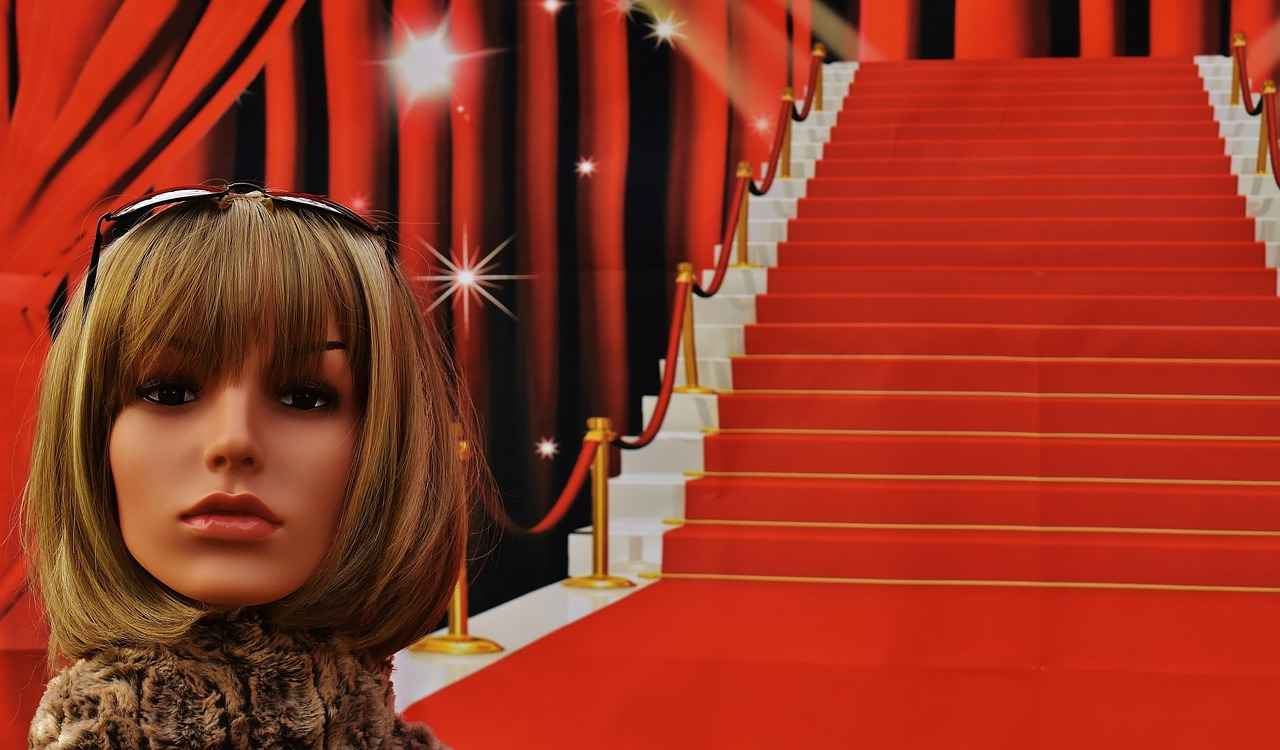
What Impact Do These Rumors Have on Celebrities?
The world of celebrity is often a double-edged sword, where fame brings both adoration and scrutiny. Among the most damaging aspects of this scrutiny are the rumors that can circulate rapidly, especially in the age of social media. The impact of such rumors on celebrities can be profound, affecting their mental health, relationships, and even their career trajectories. In this section, we will delve into the various ways in which these rumors can take a toll on public figures.
When a rumor surfaces, it can create a whirlwind of emotions for the celebrity involved. The initial reaction is often one of disbelief or shock, especially if the rumor is particularly damaging or unfounded. This emotional turmoil can lead to significant stress and anxiety. For example, a celebrity may find themselves constantly worrying about public perception and how they are portrayed in the media. The pressure to maintain a certain image can be overwhelming.
Moreover, the psychological toll of rumors can lead to serious mental health issues. Many celebrities report experiencing anxiety, depression, and even paranoia as a result of invasive gossip. They may feel as though they are under a microscope, with every action scrutinized and judged by the public. This constant state of alert can lead to burnout, making it difficult for them to engage in their work or personal lives fully.
Relationships can also suffer due to the impact of rumors. Friends and family may find it challenging to support a celebrity who is constantly in the spotlight, leading to feelings of isolation. Additionally, romantic relationships may come under strain as partners navigate the complexities of public scrutiny. For instance, a celebrity’s significant other might feel jealous or insecure due to the attention their partner receives, further complicating personal dynamics.
Career opportunities can also be adversely affected by rumors. A celebrity embroiled in controversy may find it harder to secure roles or endorsements, as producers and brands often shy away from potential backlash. This can lead to a vicious cycle where the lack of work exacerbates mental health issues, creating a challenging environment for the individual.
Furthermore, the public’s reaction to these rumors can vary widely. Some fans may rally around the celebrity, offering support and encouragement, while others may engage in negative behavior, such as trolling or spreading further misinformation. This can create a toxic atmosphere that adds to the celebrity’s distress.
In summary, the impact of rumors on celebrities is multifaceted, affecting their mental health, personal relationships, and career prospects. It is crucial for fans and media alike to consider the consequences of spreading unverified information and to approach celebrity gossip with a sense of responsibility.
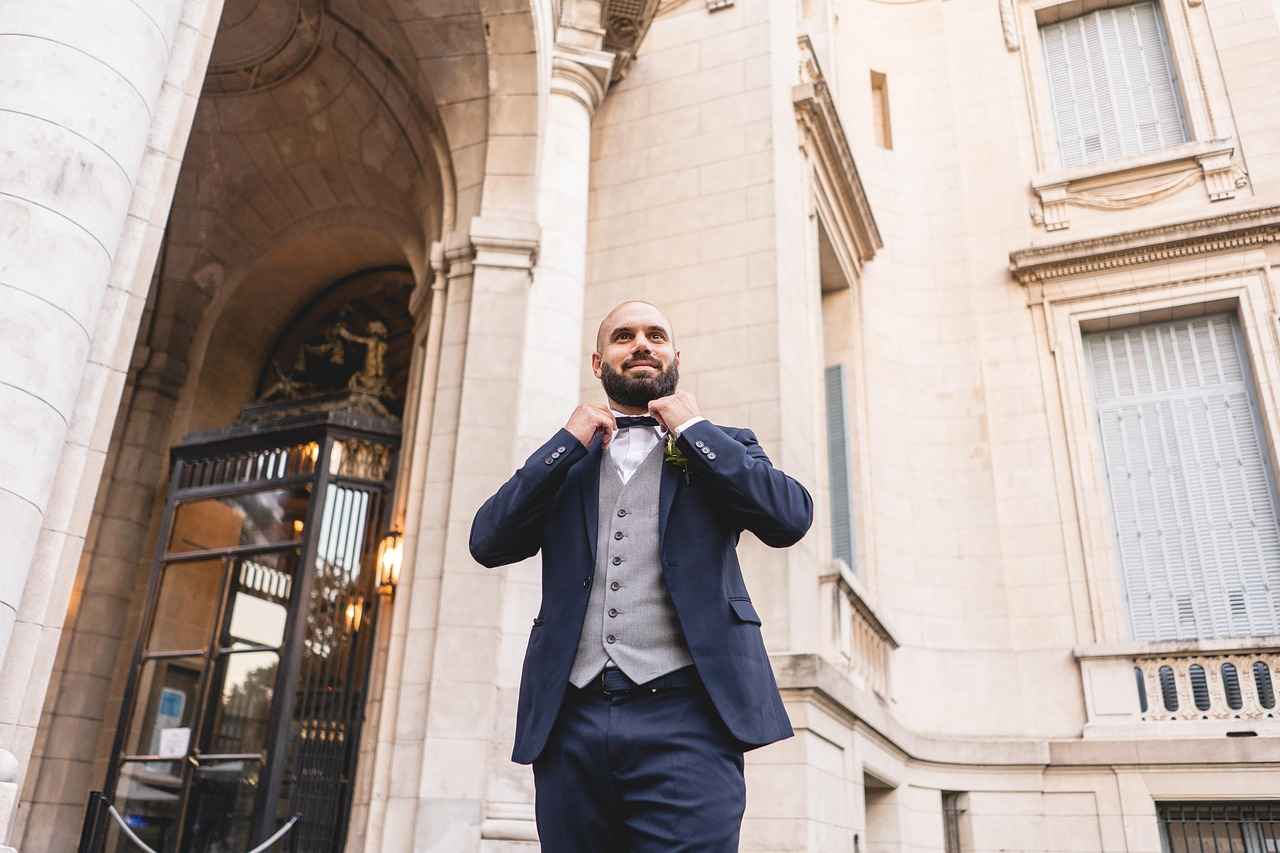
How Do Fans React to Nude Rumors About Their Favorite Celebrities?
In today’s digital landscape, the rapid spread of information—both true and false—has fundamentally changed how fans interact with their favorite celebrities. When nude rumors surface, the reactions from fans can be as diverse as the fanbase itself. Some fans leap to the defense of their idols, while others may express disbelief or even hostility towards the rumors. Understanding these varied reactions provides insight into the complex dynamics of the celebrity-fan relationship in the digital age.
Support and Defense: The Loyal Fanbase
Many fans choose to defend their favorite celebrities when faced with nude rumors. This reaction often stems from a deep emotional connection to the celebrity, built on years of admiration and support. Fans may take to social media platforms to voice their opinions, creating hashtags or threads that counter the rumors. For instance, if a celebrity like Peyton List is targeted by false claims, her devoted fans might flood Twitter with messages asserting her integrity, often sharing past interviews or charitable acts to reinforce their arguments.
Disbelief and Skepticism: Questioning the Narrative
On the other hand, some fans may react with disbelief. They might question the credibility of the sources spreading the rumors, often seeking out the original context of the claims. This skepticism can lead to a more analytical approach, where fans dissect the information presented, searching for inconsistencies or lack of evidence. This critical thinking is crucial in a world rife with misinformation, as it allows fans to protect their emotional investment in a celebrity by ensuring they are not swayed by unfounded gossip.
Public Discourse: The Role of Social Media
Social media amplifies these reactions, providing a platform for fans to express their views publicly. In many cases, the discourse can become heated, with fans engaging in debates about the morality of spreading such rumors. This public dialogue can sometimes lead to a broader conversation about celebrity culture, privacy, and the impact of social media on public perception. Fans may also rally together to support their favorite stars, organizing campaigns to promote positivity and discourage harassment.
Impact on Celebrity-Fan Relationships
The way fans respond to nude rumors can significantly impact the relationship between celebrities and their followers. Celebrities often appreciate when their fans stand up for them, as it fosters a sense of community and shared loyalty. This dynamic can strengthen the bond, leading to more open communication from the celebrity, whether through social media updates or public statements. However, if rumors are not addressed, it can create a rift, leaving fans feeling uncertain about the truth and potentially damaging the celebrity’s public image.
Conclusion
In summary, fan reactions to nude rumors about their favorite celebrities are multifaceted and reflect a range of emotions, from staunch defense to critical skepticism. As the digital age continues to evolve, understanding these dynamics is essential for both fans and celebrities, as they navigate the often murky waters of public perception and personal integrity.

What Are the Legal Implications of Spreading False Rumors?
In today’s fast-paced digital world, the spread of false rumors can have serious legal implications, particularly when it comes to celebrities. The ease with which information can be shared online has made it increasingly important to understand the potential consequences of spreading unverified claims. This section will delve into the legal framework surrounding false rumors, especially in the context of defamation laws, and explore how these laws are applied to celebrity gossip.
Defamation is a legal term that refers to the act of making false statements about someone that can harm their reputation. In the context of celebrity gossip, defamation can take two forms: libel, which involves written statements, and slander, which pertains to spoken statements. To prove defamation, the affected party must typically demonstrate that the statement was false, damaging, and made with a certain level of fault.
For public figures like celebrities, the bar for proving defamation is significantly higher than for private individuals. This is due to the First Amendment rights that protect freedom of speech. Celebrities must show that the false statements were made with “actual malice,” meaning that the person spreading the rumor either knew it was false or acted with reckless disregard for the truth. This legal standard makes it challenging for celebrities to win defamation lawsuits, but it does not mean they cannot seek justice.
The repercussions for spreading false information can be severe. Not only can individuals face legal action, but they may also suffer from reputational damage. For instance, if a rumor about a celebrity is found to be defamatory, the person who spread it may be required to pay damages, which can include compensatory damages for economic loss and punitive damages intended to punish egregious behavior.
- Hulk Hogan vs. Gawker Media: This case highlighted the power of defamation lawsuits in the digital age, resulting in a $140 million verdict for Hogan after Gawker published a sex tape without his consent.
- Johnny Depp vs. The Sun: Depp sued the British tabloid for calling him a “wife-beater,” which led to a highly publicized trial that examined the nature of celebrity gossip and its legal ramifications.
- Reese Witherspoon’s Lawsuit: The actress won a defamation suit against a tabloid that published false claims about her personal life, showcasing how celebrities can defend their reputations.
In the age of social media, where information spreads rapidly, it is crucial for both fans and media outlets to verify claims before sharing them. Not only does this help protect the integrity of individuals, but it also fosters a healthier dialogue around celebrity culture. By promoting responsible sharing practices, we can reduce the prevalence of false rumors and their associated legal consequences.
In conclusion, understanding the legal implications of spreading false rumors is essential for anyone engaged in celebrity gossip. The potential for defamation lawsuits serves as a reminder of the responsibility that comes with sharing information, especially in a world where rumors can have real-world consequences. By being informed and cautious, individuals can contribute to a more respectful and truthful narrative surrounding public figures.
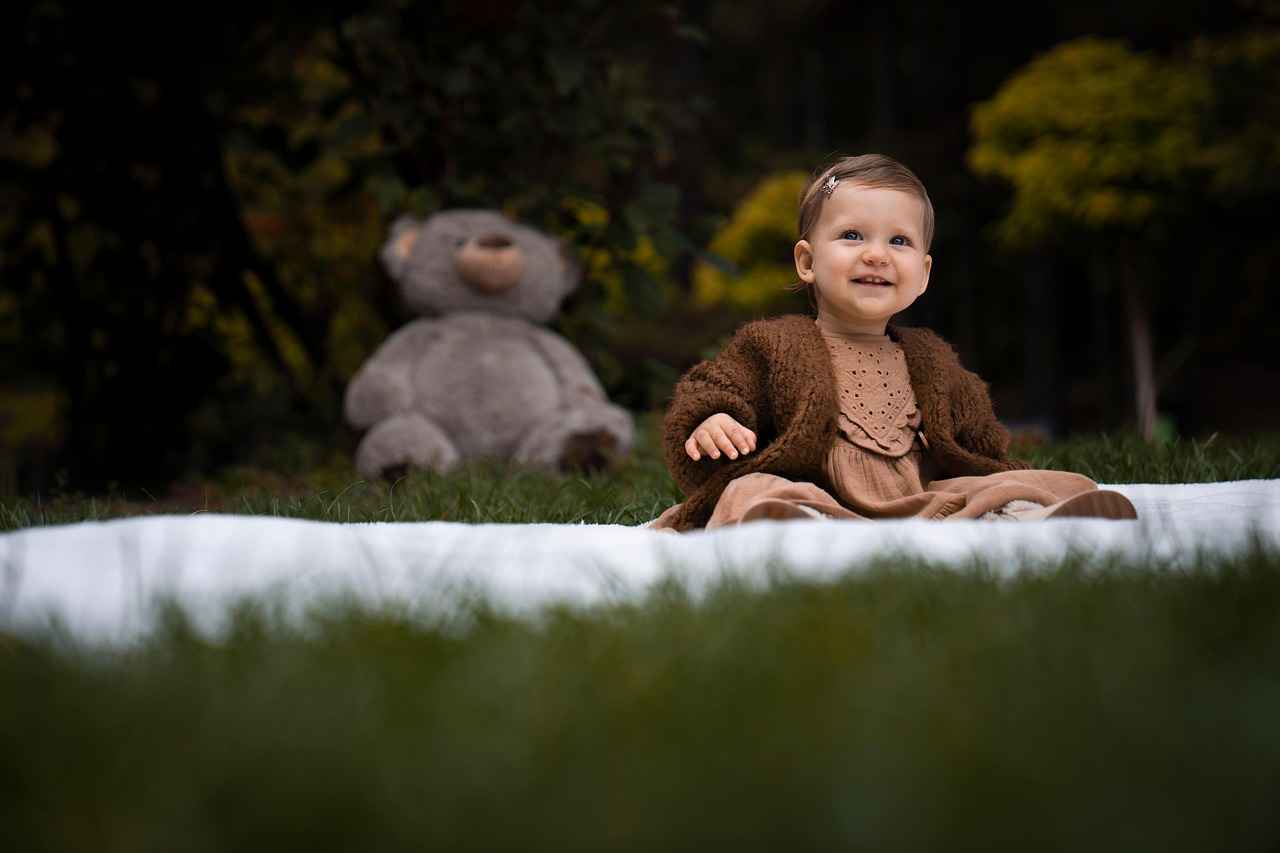
How Can Fans Differentiate Between Fact and Fiction?
In today’s digital landscape, where information is just a click away, fans often find themselves inundated with rumors and claims about their favorite celebrities. The challenge lies in distinguishing between fact and fiction. This section will explore effective strategies that fans can employ to critically evaluate sources and claims about celebrities, ensuring they remain informed and discerning in a world filled with misinformation.
Understanding the difference between fact and fiction is crucial for several reasons. Firstly, it helps maintain a healthy perspective on celebrity culture, preventing the spread of damaging rumors that can affect the lives of those in the public eye. Secondly, being able to critically evaluate information allows fans to engage in more meaningful discussions about their favorite stars, rather than perpetuating unfounded gossip. Lastly, it fosters a more respectful environment for celebrities, who often face undue scrutiny from the public.
To effectively discern fact from fiction, fans should consider the following tools:
- Verify the Source: Always check where the information is coming from. Reputable news outlets and verified accounts are more reliable than personal blogs or unverified social media posts.
- Cross-Reference Information: Look for multiple sources reporting the same information. If a rumor is true, it is likely to be covered by various credible outlets.
- Check for Expert Opinions: Sometimes, celebrity gossip is analyzed by experts in media or public relations. Their insights can provide a clearer picture of the situation.
- Look for Official Statements: Celebrities often address rumors directly through their social media or official representatives. These statements can clarify the truth behind the claims.
Social media platforms can be a double-edged sword. While they allow fans to connect with their favorite celebrities, they also serve as breeding grounds for misinformation. Here are some tips to identify misinformation:
- Be Skeptical of Sensational Headlines: If a headline seems too outrageous or scandalous, it may be designed to attract clicks rather than convey the truth.
- Investigate the Context: Sometimes, quotes or images are taken out of context to create a misleading narrative. Always seek the full story.
- Engage with Communities: Online forums and fan communities can be valuable resources for discussing rumors and sharing insights about their credibility.
Critical thinking is essential in evaluating information. Fans should ask themselves questions like: What evidence supports this claim? Who benefits from spreading this information? Is there a pattern of behavior from the source that suggests bias? By adopting a critical mindset, fans can more effectively navigate the complex landscape of celebrity gossip.
Ultimately, being informed and discerning is a responsibility that comes with fandom. By employing these strategies, fans can engage with celebrity culture in a more thoughtful and respectful manner, ensuring they contribute positively to the discourse surrounding their favorite stars.

What Are the Psychological Effects of Celebrity Culture?
The psychological effects of celebrity culture are profound and multifaceted, influencing not only the celebrities themselves but also their fans and society at large. As we delve into this topic, it’s essential to recognize how the obsession with fame and the lives of public figures can create unrealistic expectations and pressures.
Celebrity culture often glorifies an idealized version of success, beauty, and lifestyle. This can lead to unrealistic expectations for fans who may strive to emulate their favorite stars. The constant comparison can result in feelings of inadequacy, anxiety, and depression. Many fans may feel they need to attain a similar level of success or physical appearance, leading to a cycle of dissatisfaction and low self-esteem.
Moreover, celebrities themselves are not immune to these pressures. The scrutiny they face from the media and public can be overwhelming. Many stars report experiencing anxiety and stress due to the constant need to maintain a public persona. This pressure can manifest in various ways, including substance abuse, mental health disorders, and even burnout. The toll of living under a microscope can be devastating, as many celebrities find it challenging to separate their public image from their private lives.
Social media has revolutionized the way we interact with celebrity culture. Platforms like Instagram and Twitter provide fans with unprecedented access to the lives of their favorite stars. While this can foster a sense of connection, it also blurs the lines between reality and perception. Fans often only see curated glimpses of a celebrity’s life, leading to distorted views of what is normal or achievable.
- Comparison: Social media encourages constant comparison, as users often showcase their best moments, leading others to feel inadequate.
- Validation: Celebrities receive validation through likes and comments, which can create a dependency on public approval.
- Cyberbullying: The anonymity of the internet can lead to harsh criticism and bullying, impacting both fans and celebrities.
Both fans and celebrities develop coping mechanisms to deal with the psychological pressures of celebrity culture. Fans may seek support from online communities or engage in discussions to share their feelings and experiences. This can create a sense of belonging and understanding, helping them navigate their emotions.
On the other hand, celebrities might turn to therapy or public relations teams to manage their image and mental health. Many stars have begun to speak openly about their struggles, advocating for mental health awareness and encouraging fans to prioritize their well-being. This shift towards transparency can help dismantle the stigma surrounding mental health issues, fostering a healthier dialogue around the challenges of fame.
To mitigate the negative psychological effects of celebrity culture, both fans and celebrities must engage in more mindful practices. Fans should strive to critically evaluate the content they consume and recognize the curated nature of social media. Meanwhile, celebrities can work towards authenticity, sharing their real-life struggles and triumphs to foster genuine connections with their audience.
Educational initiatives that promote media literacy can also empower fans to discern fact from fiction, reducing the impact of unrealistic portrayals of celebrity life. By fostering open conversations about the psychological effects of fame, we can create a more supportive environment for both fans and celebrities.
In conclusion, the psychological effects of celebrity culture are significant and far-reaching. By understanding these dynamics, we can navigate the world of fame with greater empathy and awareness, creating a healthier relationship between celebrities and their fans.

How Do Public Relations Teams Manage Rumors?
In the fast-paced world of celebrity culture, rumors can emerge at any moment, often without warning. Public relations (PR) teams are essential in navigating these turbulent waters, employing a variety of strategies to manage a celebrity’s image and address false claims. This article delves into the techniques used by PR professionals to mitigate the impact of rumors, ensuring that their clients maintain a positive public perception.
Understanding the Role of PR Teams
PR teams act as the first line of defense against misinformation. Their primary goal is to protect and enhance the reputation of their clients. This involves not only responding to rumors but also proactively shaping the narrative surrounding a celebrity. For instance, when a rumor arises, PR teams quickly assess the situation, determining whether the claim has any basis in fact and devising a response strategy accordingly.
Developing a Rapid Response Plan
One of the key strategies employed by PR teams is the development of a rapid response plan. This plan outlines how to react to various types of rumors, ensuring that the celebrity’s response is timely and effective. A well-crafted response can help to quell speculation before it spirals out of control. For example, if a celebrity is rumored to be involved in a scandal, the PR team may issue a statement denying the claims and providing context to clarify the situation.
Utilizing Social Media
In today’s digital age, social media platforms play a crucial role in rumor management. PR teams leverage these platforms to communicate directly with fans and the public. By addressing rumors head-on through social media posts or live videos, celebrities can take charge of the narrative and dispel false information. This direct line of communication fosters a sense of transparency and authenticity, which can strengthen the bond between the celebrity and their audience.
Engaging with the Media
Another vital component of rumor management is engaging with the media. PR teams often work closely with journalists to provide accurate information and clarify any misunderstandings. By building relationships with media outlets, PR professionals can ensure that their clients’ side of the story is told, helping to combat sensationalized reporting. This proactive approach can significantly influence how rumors are perceived by the public.
Monitoring Public Sentiment
Effective rumor management also involves monitoring public sentiment. PR teams utilize analytics tools to track social media conversations, news articles, and online discussions related to their clients. This data helps them understand how rumors are impacting public perception and allows them to adjust their strategies accordingly. If a rumor gains traction, the PR team can amplify their response efforts to counteract the misinformation.
Conclusion
Public relations teams play a pivotal role in managing rumors and protecting a celebrity’s image. Through rapid response plans, social media engagement, media relations, and public sentiment monitoring, PR professionals work tirelessly to mitigate the impact of false claims. As the landscape of celebrity culture continues to evolve, the importance of effective rumor management will only grow, underscoring the need for skilled PR teams in the industry.
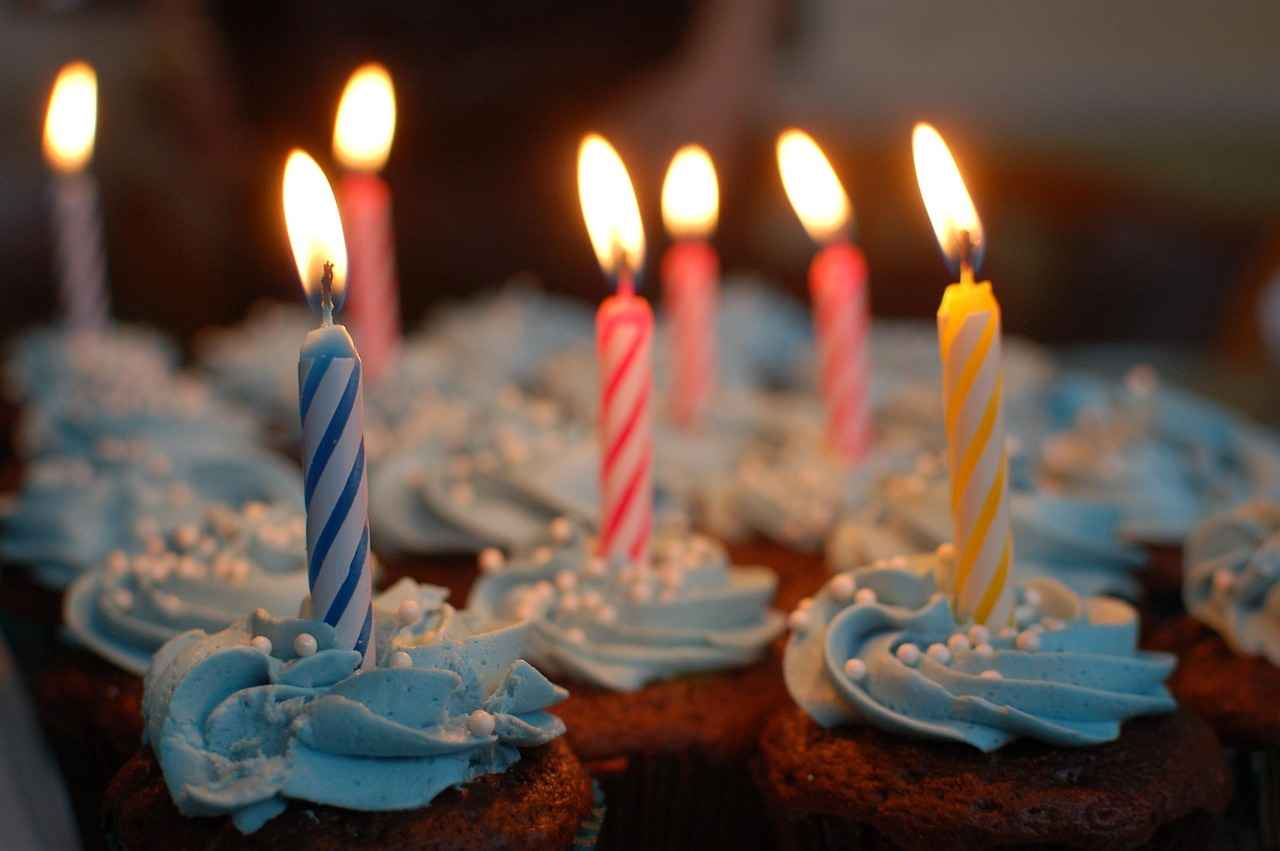
What Is the Role of the Media in Reporting on Celebrity Rumors?
Peyton List Nude Rumors: Sorting Fact from FictionIn today’s digital landscape, the line between fact and fiction can often blur, especially when it comes to celebrity gossip. Media outlets play a pivotal role in shaping public perception, and their approach to reporting on rumors can significantly impact the lives of the celebrities involved. This article delves into the responsibility of the media in reporting on celebrity rumors, particularly in the context of the nude rumors surrounding actress Peyton List.
The media serves as a primary source of information for the public, and this role comes with a significant amount of responsibility. When it comes to celebrity rumors, the media has the power to either validate or dispel claims, influencing how these stories are perceived by the audience. Unfortunately, many media outlets prioritize sensationalism over accuracy, often sensationalizing rumors to attract clicks and views.
For instance, when rumors about Peyton List’s alleged nude photos surfaced, various media platforms jumped on the opportunity to report the story without thorough fact-checking. This rush to publish can result in the spread of misinformation, which not only harms the celebrity’s reputation but also misleads the public. Readers are often left with a skewed understanding of the situation, which can lead to unwarranted judgment and scrutiny.
Moreover, the competitive nature of the media industry encourages outlets to chase the latest gossip, sometimes at the expense of journalistic integrity. This can lead to a culture where clickbait headlines take precedence over responsible reporting. As a result, the public becomes desensitized to the impact of these rumors, viewing them as mere entertainment rather than serious allegations that can affect real lives.
- Impact on Celebrity Lives: The emotional toll on celebrities can be profound. Constant scrutiny and false narratives can lead to anxiety, depression, and a feeling of isolation.
- Public Perception: How the media portrays a celebrity can shape public opinion, often leading to a mob mentality where fans and critics alike jump to conclusions without knowing the full story.
- Accountability: Media outlets must be held accountable for their reporting. Ethical journalism requires a commitment to fact-checking and responsible storytelling.
In conclusion, the media’s role in reporting on celebrity rumors is a double-edged sword. While it has the potential to inform the public, it also carries the risk of perpetuating false narratives. As consumers of media, it is crucial for readers to approach celebrity news with a critical eye, questioning the sources and motivations behind the stories they encounter. By doing so, we can foster a more informed and respectful dialogue around celebrity culture, ultimately benefiting both the public and the celebrities themselves.

How Do Fans Feel About Celebrities Addressing Rumors?
In today’s celebrity-driven culture, rumors can spread rapidly, often leaving fans feeling confused and concerned about their favorite stars. When celebrities choose to address these rumors directly, it can significantly impact how fans perceive them. This article delves into the various ways fans feel about celebrities taking a stand against rumors, highlighting the importance of transparency and authenticity in the relationship between stars and their followers.
Fans generally appreciate when celebrities openly address rumors for several reasons. First and foremost, it fosters a sense of authenticity. In an age where social media can distort reality, fans often crave genuine interactions with their idols. When a celebrity takes the time to clarify misinformation, it reassures fans that they are not just another face in the crowd but individuals who care about their audience.
Moreover, addressing rumors can help build trust. When celebrities are transparent about their lives, it creates a stronger bond with their fan base. Fans feel more connected and invested in the celebrity’s journey, which can lead to increased loyalty and support. This connection is particularly crucial in an era where fans often feel a sense of ownership over their favorite stars, as they follow their lives closely through social media platforms.
The way fans react to a celebrity addressing rumors can vary widely. For some, it can lead to feelings of relief and validation. Fans who have defended their favorite stars against false claims often feel vindicated when the celebrity confirms the truth. On the other hand, some fans may feel disappointed if the celebrity’s response does not align with their expectations or beliefs. This discrepancy can create tension within fan communities, leading to debates and discussions that can either strengthen or weaken the fan base.
When celebrities address rumors, it can also have psychological implications for fans. For instance, it can alleviate anxiety and uncertainty. Fans often invest emotionally in their favorite celebrities, and when rumors circulate, it can lead to feelings of distress. Open communication can help mitigate these feelings, allowing fans to focus on the positive aspects of their idol’s life rather than speculation.
Moreover, when celebrities engage in open dialogue with their fans, it can shape the overall culture surrounding celebrity worship. It encourages a more respectful discourse where fans feel empowered to question and discuss information critically. Instead of blindly believing everything they read, fans can develop a more nuanced understanding of the celebrity’s life, fostering a healthier relationship between fans and stars.
In the long run, celebrities who actively engage with their fans about rumors can cultivate a more loyal following. This loyalty can translate into increased support for their projects, whether it be movies, music, or other ventures. Additionally, it can create a community where fans feel valued and heard, ultimately fostering a more positive environment both online and offline.
In conclusion, the importance of celebrities addressing rumors cannot be overstated. It not only helps clarify misconceptions but also strengthens the bond between stars and their fans. By fostering transparency and open communication, celebrities can create a more authentic and supportive fan culture that benefits everyone involved.

What Are the Consequences of Misinformation in the Age of Social Media?
Misinformation has become a pervasive issue in the digital age, particularly with the rise of social media. The rapid spread of false information can have significant repercussions, not only for individuals but also for society as a whole. Understanding these consequences is crucial, especially in the context of celebrity culture, where public figures are often at the center of such controversies.
The influence of misinformation on public opinion is profound. When false narratives are shared widely, they can shape perceptions and attitudes, often leading to misguided beliefs. For instance, a celebrity’s reputation can be tarnished overnight due to unverified claims. This phenomenon is particularly evident in cases like Peyton List, where rumors regarding her personal life have sparked debates among fans and the media alike.
Moreover, misinformation can create polarized opinions, dividing fans and the public into factions that either support or denounce the subject of the rumors. Such division can lead to a toxic environment online, where hostility and aggression replace constructive dialogue.
The psychological toll of misinformation is significant. Celebrities, like anyone else, are human and can be deeply affected by the rumors circulating about them. The constant scrutiny and negative attention can lead to anxiety, depression, and a sense of isolation. For example, when rumors about Peyton List spread, it was not just her career at stake but also her mental well-being.
- Increased Anxiety: The fear of public judgment can lead to heightened stress levels.
- Loss of Privacy: Celebrities often feel their personal lives are under constant surveillance.
- Impact on Relationships: Misinformation can strain personal and professional relationships.
Legal ramifications are another critical aspect of misinformation. Celebrities frequently find themselves in a position where they must defend their reputation against false claims. Defamation lawsuits are common in these scenarios, as individuals seek to reclaim their narrative and protect their image.
For instance, if someone spreads false information about a celebrity’s conduct, it could lead to significant financial and emotional damage. Legal action not only serves as a deterrent for potential offenders but also highlights the seriousness of spreading unverified claims.
The media’s role in perpetuating misinformation cannot be overlooked. In the quest for clicks and views, some outlets may prioritize sensationalism over accuracy. This tendency can exacerbate the spread of false information, as seen in numerous celebrity gossip columns that thrive on scandal rather than truth.
It is essential for consumers of media to critically evaluate sources and seek out reputable outlets that prioritize factual reporting. By doing so, they can help mitigate the impact of misinformation and promote a healthier dialogue around celebrity culture.
Combatting misinformation requires a proactive approach. Individuals can take several steps to ensure they are informed correctly:
- Verify Sources: Always check the credibility of the source before sharing information.
- Engage in Critical Thinking: Question the motives behind the information and consider alternative perspectives.
- Educate Others: Share knowledge about the dangers of misinformation to foster a more informed community.
In conclusion, the consequences of misinformation in the age of social media are vast and complex. From influencing public opinion to affecting mental health and leading to legal issues, the ripple effects are felt by many. By understanding these dynamics, individuals can take steps to mitigate the impact of false information and foster a more informed society.
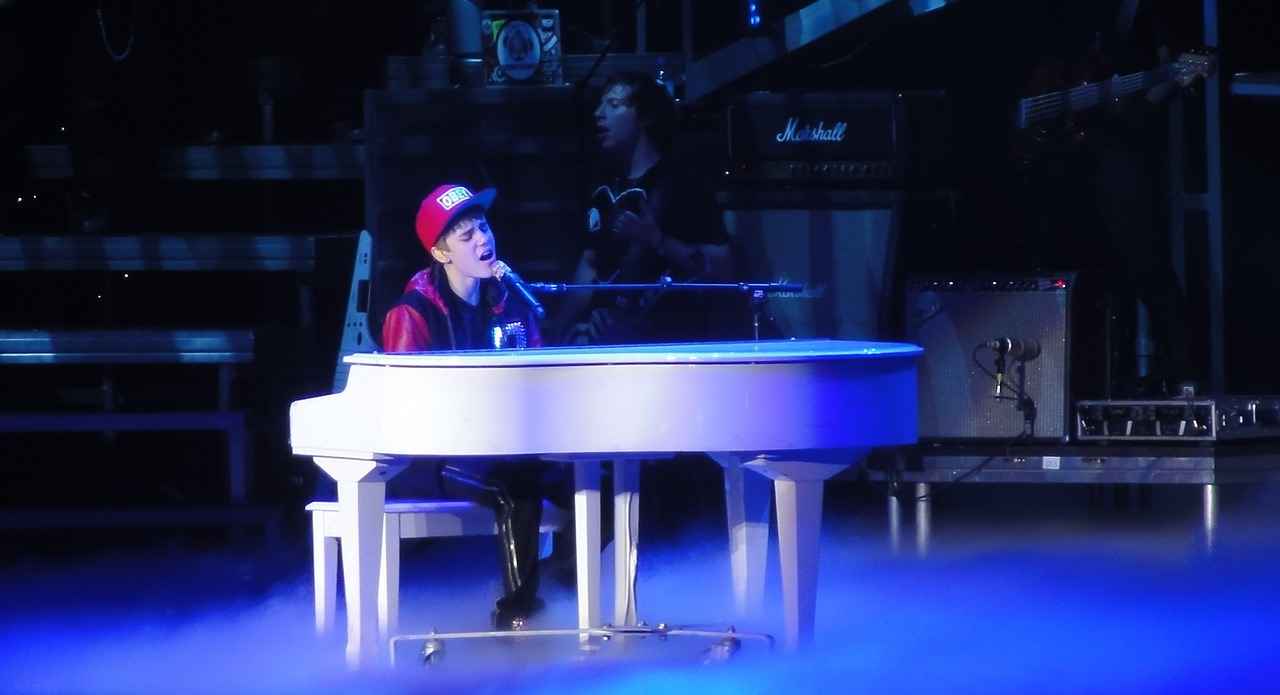
How Can We Foster a Healthier Dialogue Around Celebrity Gossip?
In today’s fast-paced digital landscape, celebrity gossip has become a staple of entertainment culture. However, the spread of misinformation and negative narratives can create a toxic environment for both fans and celebrities. It is essential to foster a healthier dialogue around celebrity gossip to promote understanding and respect. This article explores effective strategies to encourage informed discussions that can combat negativity and enhance the overall experience for everyone involved.
Engaging in respectful discussions about celebrities can yield numerous benefits. Firstly, it helps to cultivate a positive atmosphere where fans can express their admiration without fear of judgment. This environment not only supports the mental health of fans but also protects the emotional well-being of celebrities who often face undue scrutiny.
Moreover, respectful dialogue encourages fans to critically evaluate information before sharing it. By promoting a culture of fact-checking, fans can become more discerning consumers of media. This shift can lead to a decrease in the spread of harmful rumors and misinformation, ultimately benefiting the celebrity community as a whole.
- Share Verified Information: Fans should prioritize sharing content from credible sources. This can involve checking the authenticity of news articles or social media posts before sharing them.
- Engage in Constructive Dialogue: Instead of resorting to name-calling or harsh criticisms, fans can focus on discussing their favorite aspects of a celebrity’s work or personality. This encourages a more uplifting conversation.
- Support Celebrities Publicly: Fans can use their platforms to defend celebrities against false rumors. A simple post acknowledging a celebrity’s hard work can go a long way in fostering goodwill.
Media outlets have a significant influence on how celebrity gossip is perceived. Sensationalized headlines and misleading articles can perpetuate negativity and misinformation. Therefore, it is crucial for fans to hold media accountable for their reporting. By demanding ethical journalism, fans can help shift the narrative towards more responsible coverage.
Additionally, fans can advocate for positive media representation by supporting outlets that prioritize accuracy and integrity. When fans choose to engage with media that respects celebrities and their privacy, it sends a clear message about the type of coverage that is desirable.
Building a supportive online community requires active participation and commitment from fans. Online forums and social media groups can serve as platforms for fans to engage in meaningful discussions. Setting community guidelines that emphasize respect and empathy can help maintain a positive environment.
Furthermore, organizing fan events, both virtual and in-person, can strengthen the community bond. These events can focus on celebrating the achievements of celebrities rather than discussing rumors, fostering a sense of unity among fans.
In conclusion, fostering a healthier dialogue around celebrity gossip is essential for creating a more positive environment for both fans and celebrities. By encouraging respectful discussions, sharing verified information, and holding media accountable, fans can contribute to a culture that values integrity and empathy. Together, we can combat the negativity that often surrounds celebrity culture and promote a more supportive community for everyone involved.
Frequently Asked Questions
- What sparked the rumors about Peyton List?
The rumors about Peyton List began circulating due to a mix of leaked images and fan speculation on social media platforms. Often, such rumors can stem from misinterpretations or even harmless fan art that gets taken out of context.
- How do nude rumors typically gain traction?
Nude rumors often spread like wildfire through social media, gossip websites, and fan forums. The viral nature of these platforms amplifies unverified claims, making it essential for fans to scrutinize the sources of such information.
- Has Peyton List addressed these rumors directly?
Yes, Peyton List has addressed the rumors through her social media channels and interviews, often emphasizing the importance of distinguishing between fact and fiction. Her responses help shape public perception and clarify her stance on the matter.
- What psychological effects do these rumors have on celebrities?
The psychological toll of such rumors can be significant, leading to stress, anxiety, and even depression. Celebrities like Peyton List often deal with public scrutiny that can affect their mental health and personal relationships.
- How can fans tell what’s real and what’s not?
Fans can differentiate between fact and fiction by critically evaluating sources, checking for credible news outlets, and being cautious of sensationalized headlines. It’s important to approach rumors with skepticism and seek out verified information.
- What legal actions can be taken against false rumors?
False rumors can lead to defamation lawsuits, where the affected celebrity can seek legal redress against those spreading misinformation. This legal framework is crucial in protecting individuals from harmful and baseless claims.














